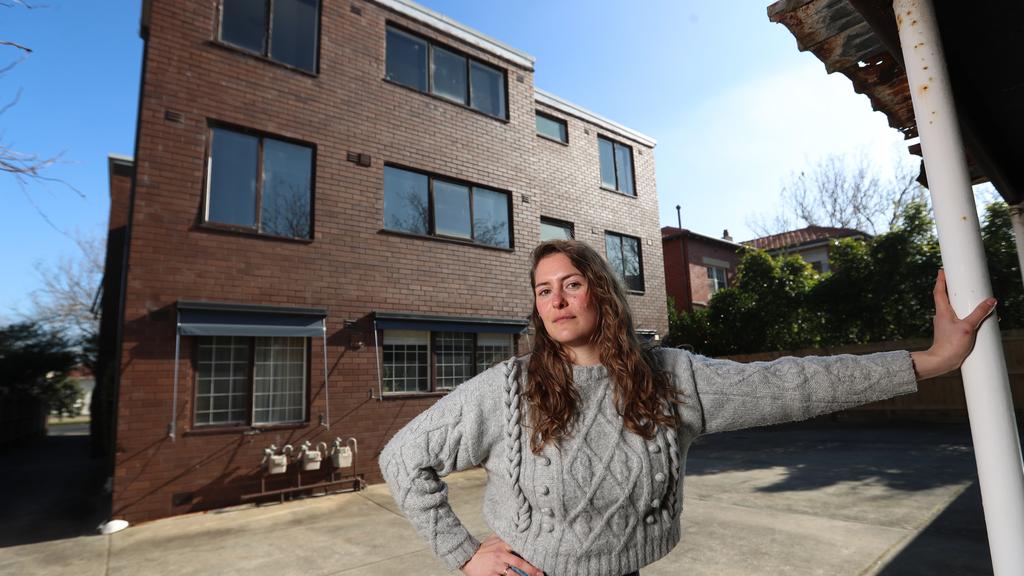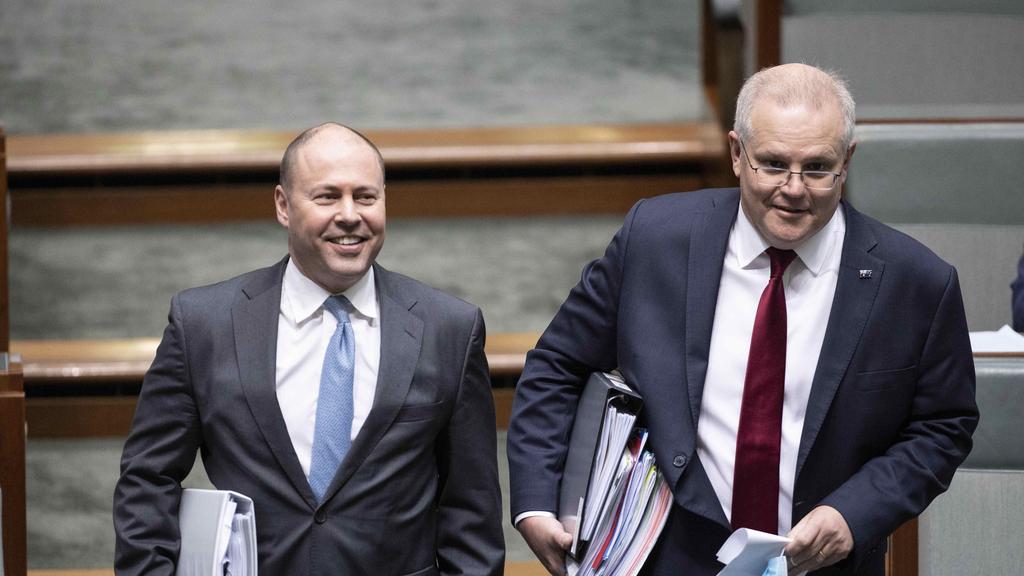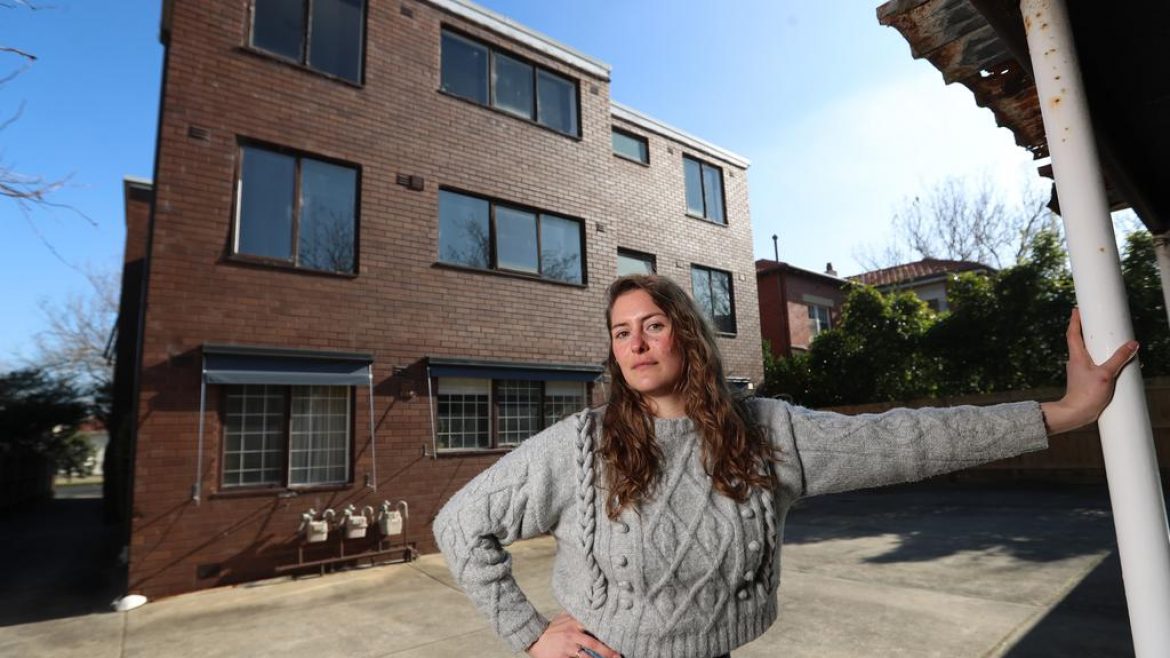
Ripponlea tenant Courtney Windross lost her job at a local restaurant due to COVID-19. Picture: Alex Coppel
The looming cut to JobSeeker is a “ticking time bomb” for low-income tenants, who face being priced out of the private Melbourne rental market if the payment returns to pre-coronavirus levels.
Just 84 rental homes across greater Melbourne are affordable for singles relying on the current JobSeeker rate of $1115 a fortnight, according to Anglicare Australia. This equated to 0.3 per cent of the 25,293 listings analysed.
That number will plunge to 15 (0.1 per cent) if the federal government slashes JobSeeker to $815 from September 25 as planned, and five (0 per cent) if the payment returns to its pre-pandemic fortnightly rate of $565 as is on the cards from December 31.
RELATED: Coronavirus exposes ‘chronic shortage of social housing’ in Victoria
Struggling Melbourne tenants ignored by landlords
Melbourne inner suburbs become renter’s markets, but affordability plunges for some
Anglicare is urging the government to permanently raise welfare payments.
It found affordability for low-income tenants had deteriorated since the pandemic struck in March, despite the boost to welfare and a rush of new listings triggering rental price declines.
Anglicare Australia executive director Kasy Chambers said the price falls had been concentrated at the higher end of the market, not the lower end, and coronavirus-related hardship had also fuelled more competition for lower-cost rentals.
New Treasury analysis showed almost 30,000 Victorians had started receiving unemployment benefits since the end of June, as a result of the devastating second wave.

Low-income Melbourne renters will “struggle to stay out of homelessness” if JobSeeker is reduced, Anglicare Australia says.
“Even when jobs start reappearing in Victoria, the level of underemployment is going to be huge,” Ms Chambers said.
“If the plans (to reduce JobSeeker) go ahead, many people across greater Melbourne are going to struggle to stay out of homelessness.
“If they are able to, they’re likely to do so by making decisions about the quality and quantity of food they can get their families. We hear of two-minute noodles becoming a staple.
“This is a ticking time bomb. We must raise these payments for good.”
Ms Chambers said governments also urgently needed to address Victoria’s gaping shortfall of 102,800 social housing and affordable rental properties, and continue supporting struggling tenants and landlords through the pandemic.
Anglicare also found a family of four with two adults on the current JobSeeker could afford 1255 rentals across Melbourne (5 per cent). That would plummet to 102 (0.4 per cent) with JobSeeker’s looming cut, and nine (0 per cent) with a return to the pre-pandemic rate.
For a single JobSeeker recipient with a child aged above eight, the numbers were five, one and one respectively.

Prime Minister Scott Morrison and Treasurer Josh Frydenberg added a coronavirus supplement to JobSeeker in March, but Morrison’s government now plans to cut that supplement. Picture: Gary Ramage, NCA NewsWire
Tenants relying on the age pension, disability support pension and youth allowance also had slim pickings.
For minimum wage earners, 3207 Melbourne rentals (12.7 per cent) were achievable for double-income households with two children, 121 (0.5 per cent) for single-income households, and 61 (0.2 per cent) for single-income households with two children.
The report follows the Community Housing Industry Association, National Shelter, and Homelessness Australia joining forces to urge the federal government to invest $7.7b in building, acquiring and renovating social housing, to create much-needed homes and construction jobs to assist Australia’s COVID-19 recovery.
Homelessness Australia chair Jenny Smith warned homelessness would “skyrocket” without government intervention, due to growing unemployment levels and impending welfare cuts.
Meanwhile, the Victorian Government has announced it will offer to move high-rise public housing tenants at the greatest risk from coronavirus into private rentals as part of a $31.7m Tower Relocation Program.
The government said it would lease up to 420 private rental properties for two years as part of the program, which was designed to reduce coronavirus transmissions and open up social housing supply for Victorians.
MORE: Victorians tackle most home renovations, filling footy gap
Movie-length online auction goes $90k past reserve
Melbourne home values to be worst hit by COVID-19
The post JobSeeker cut will hurt low-income Melbourne renters: Anglicare appeared first on realestate.com.au.

